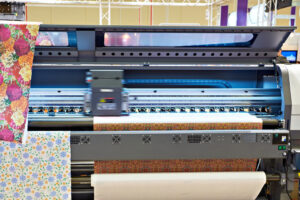For every piece of beautiful wardrobe, there’s labor and hard work behind it. To respect the effort that workers make in creating the garments that comprise the fashions we know today, supporting fair trade fashion becomes a necessity. Fair trade fashion clothing not only ensures fair payment and an ethical production process throughout the supply chain but also promotes environmental sustainability.
Whether you are considering to launch a sustainable apparel business that aims to source garments made through fair compensation and in safe workplaces or simply a consumer who is trying to get educated on fair trade clothing, this article will guide you to understand more about this subject, learn what principles of fair trade fashion are, its importance and where you can purchase these products.
What Is Fair Trade in Fashion?
Fair trade in fashion means that every piece of clothing is made with respect for the people who produce it and the environment from which it comes. It’s a system that prioritizes fair wages, safe working conditions and ethical sourcing across the entire supply chain. For fashion-conscious consumers in Hong Kong, it represents an opportunity to align their style choices with values of social and environmental responsibility.
10 Principles of Fair Trade Clothing
Fair trade fashion isn’t just a marketing term; it’s guided by clear principles that shape every step of the apparel journey—from raw material to retail shelf. Here’s how these principles bring integrity to your wardrobe:
Creating Opportunities for Economically Disadvantaged Producers
Fair trade begins with providing genuine economic opportunities for marginalized workers and communities. Many producers in developing countries struggle to compete in global markets due to unfair pricing and exploitative practices. Fair trade fashion brands collaborate directly with these groups to ensure a stable income, empowering them to build sustainable livelihoods and break the cycle of poverty.
Transparency and Accountability
Brands commit to openly sharing information about their production practices, supply chain partners and pricing structures. This level of accountability helps ensure that fair trade standards are consistently upheld at every stage, giving Hong Kong consumers the confidence that their purchases support ethical production.
Fair Trading Practices
Unlike fast fashion’s price-driven negotiations, fair trade fosters long-term partnerships founded on mutual respect and equitable pricing. Brands work to eliminate exploitative practices, ensuring producers receive predictable, stable pay that covers the true cost of sustainable production.
Payment of a Fair Price
A fair price is not just about covering production costs; it includes a living wage that enables workers to meet basic needs and plan for their futures. In fair trade fashion, clothing brands pay prices that reflect the true value of craftsmanship, ensuring that workers are never forced to compromise their health, safety, or dignity for a paycheck.
Ensuring No Child Labor and Forced Labor
Fair trade fashion takes a firm stand against child labor and forced labor. By auditing their supply chains and working closely with partners, fair trade brands ensure that they uphold fundamental human rights. For consumers in Hong Kong, this means that the clothes they buy are free from exploitation, offering peace of mind that their style choices support safe and fair workplaces.
Commitment to Non-Discrimination, Gender Equity and Freedom of Association
Fair trade principles support workplaces that are free from discrimination based on gender, ethnicity, religion or social status. They also protect the right to form and join unions, giving workers a voice in shaping their work conditions.
Good Working Conditions
Safe and healthy working environments are a cornerstone of fair trade practices in the fashion industry. Brands commit to minimizing workplace hazards and respecting working hours and rest days.
Capacity Building
Beyond fair wages, fair trade empowers producers to invest in their future. Brands often provide training, education, and resources to help workers and communities improve their skills and access new markets. This holistic approach to empowerment ensures that fair trade becomes a catalyst for sustainable growth.
Promoting Fair Trade
Fair trade brands and supporters play an active role in raising awareness about ethical fashion. In Hong Kong, where sustainability is becoming increasingly important, these efforts help shift the conversation towards responsible consumption and encourage more people to embrace fashion that aligns with their values.
Respect for the Environment
Environmental stewardship is a central component of fair trade fashion. From reducing water usage in dyeing processes to avoiding toxic chemicals, brands work to minimize their ecological footprint. Supporting fair trade means contributing to a cleaner, greener future—something that resonates with eco-conscious consumers in Hong Kong’s fast-paced urban landscape.
Where Can I Buy Fair Trade Clothing?
In Hong Kong, fair trade fashion is becoming more accessible, with a growing number of boutiques and online stores offering ethically sourced apparel. Major eco-fashion retailers and pop-up markets often showcase collections from fair trade-certified brands, offering consumers the opportunity to shop with intention. Online platforms, such as ASOS, Shopbop, or Arket, often curate selections of ethical and sustainable fashion, making it easy for consumers to find fair trade options that align with their style. By choosing fair trade, you’re not only investing in quality garments but also in a future where fashion uplifts everyone it touches.



